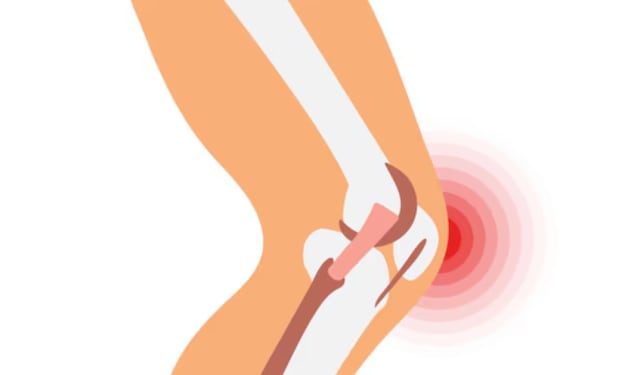Questioning Depression: Can Treatment Truly make a Difference?
Depression treatment

Depression, a pervasive mental health condition affecting millions worldwide, can be a debilitating and life-altering experience. The importance of effective treatment for depression cannot be overstated, as it impacts not only the individual but also their relationships, productivity, and overall quality of life. In this article, we delve into the question of whether treatment can truly make a difference in combating depression and explore an emerging treatment approach known as ketamine infusion therapy.
The Impact of Depression
Depression is more than just feeling sad or down. It is a complex disorder that affects one's emotions, thoughts, behaviors, and physical well-being. Symptoms may include persistent sadness, loss of interest in activities, fatigue, changes in appetite and sleep patterns, difficulty concentrating, and thoughts of self-harm or suicide. Depression can lead to a diminished sense of self-worth, impaired functioning, strained relationships, and a reduced quality of life.
Traditional Treatment Approaches
Psychotherapy: Psychotherapy, such as cognitive-behavioral therapy (CBT) and interpersonal therapy, is a widely recognized and effective treatment for depression. It aims to help individuals identify and modify negative thought patterns, develop coping strategies, and improve interpersonal relationships.
Medication: Antidepressant medications, such as selective serotonin reuptake inhibitors (SSRIs) and serotonin-norepinephrine reuptake inhibitors (SNRIs), are commonly prescribed to manage depression. These medications work by altering the balance of chemicals in the brain to alleviate symptoms.
Challenges in Depression Treatment
Treatment Resistance: Unfortunately, not all individuals respond adequately to traditional treatments. Treatment-resistant depression occurs when symptoms persist despite attempts with different therapies and medications. This highlights the need for alternative approaches that can make a significant difference for those who do not experience relief from standard treatments.
Delayed Onset of Effect: Traditional treatments often require several weeks or even months to show noticeable improvements. This delayed onset can be frustrating for individuals seeking immediate relief, and it may impede their ability to function optimally during this period.
Ketamine Infusion Therapy
Ketamine, traditionally used as an anesthetic and analgesic, has emerged as a novel depression treatment in Orange County in recent years. Ketamine infusion therapy involves the intravenous administration of a carefully controlled dosage of ketamine in a controlled clinical setting.
Rapid Relief: One of the most significant advantages of ketamine infusion therapy is its ability to produce rapid relief from depressive symptoms. Unlike traditional treatments, ketamine can often elicit positive effects within hours or days, making it particularly valuable for individuals in crisis or those who have not responded to other interventions.
Mechanism of Action: Ketamine works by targeting the glutamate system in the brain, specifically the N-methyl-D-aspartate (NMDA) receptor. It enhances the production of brain-derived neurotrophic factor (BDNF), which promotes the growth and connectivity of neurons. This neuroplasticity effect is believed to contribute to the therapeutic benefits of ketamine.
Safety and Side Effects: Ketamine infusion therapy is generally considered safe when administered under medical supervision. However, like any medical intervention, it can have potential side effects, including dissociation, hallucinations, increased blood pressure, and nausea. These side effects are typically temporary and subside shortly after the infusion.
Conclusion
Depression is a complex mental health condition that demands effective and timely interventions. While traditional treatments such as psychotherapy and medication remain cornerstones of depression management, there is a growing body of evidence supporting the potential benefits of ketamine infusion therapy. With its rapid onset of action and unique mechanism of action, ketamine infusion therapy offers hope for individuals who have not found relief from conventional treatments or are in urgent need of symptom alleviation. However, it is important to note that ketamine infusion therapy is still a relatively new and evolving field, and further research is needed to fully understand its long-term effectiveness and safety
About the Creator
Enjoyed the story? Support the Creator.
Subscribe for free to receive all their stories in your feed. You could also pledge your support or give them a one-off tip, letting them know you appreciate their work.





Comments
There are no comments for this story
Be the first to respond and start the conversation.